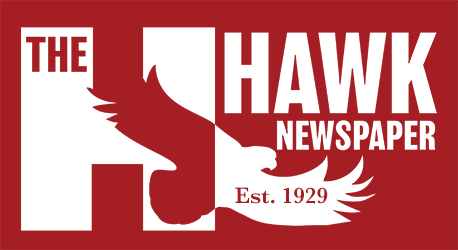University officials hosted what they called a student listening session, Sept. 9, at the UCity campus. Led by Ross Radish, J.D., associate vice president of Student Life & dean of students, the session began with short presentations by representatives from the offices of Information Technology, Academic Affairs and Student Life who provided updates from their respective departments.
Thereafter Dean Radish invited students to share their concerns about issues they or their friends had noticed and experienced. Several students asked questions about what they said was unreliable intercampus shuttle services, misdirected email communications, and difficulties with scheduling classes. The administrators listened and answered students’ questions but also indicated in some instances that they were not aware of the issue and would therefore take it back to their offices for further investigation.
The listening session, attended by at least 30 students, highlights an important part of being a college student: speaking up about what changes you want to make at your university. Now administrators know about these issues, and we can expect them to respond by making the necessary changes. There are other ways to make your voice heard. Get involved in student organizations, attend University Student Senate meetings, and of course, write letters or columns for your student newspaper, The Hawk. The university has an obligation to give students a chance to be heard. Productive listening sessions must include engaged students and attentive administrators. Not every problem can be fixed, but students can begin the conversation.
——
A book is a multifaceted medium of discovery that is now threatened by the preferences of the few to the detriment of the many.
These past two years have shone a light on numerous fissures in the supposed unity of our nation and our world, inspiring introspection and the sharing of stories through many genres. Anthologies, fiction, biographies, graphic and verse novels and many more continue to open the world’s eye to the experiences of populations previously hidden.
However, within public schools, libraries and universities across the nation, hundreds of books are being pulled from the shelves in a misguided effort to protect the minds of readers. The main character, theme or concept behind a large portion of the banned books often involves the stories of marginalized populations. Memoirs and fiction novels that can challenge the majority thought are pushed away by those who enjoy the comforting embrace of confirmation bias.
As university students, we are privileged to participate in classes that force us to face our comfort zone, engaging in uncomfortable conversations that often leave classrooms thick with tension and uncertainty. Our libraries provide access to categorized histories, theories, concepts and experiences that catalyze discourse. We students bring that knowledge and awareness to our permanent homes over weekends and official breaks. That is the time to educate and empower.
Knowledge is fostered in environments that conflict and challenge the internal monologue. Allowing ourselves to become ignorant of the experiences of others because of individual comforts does more harm than good.
The Hawk welcomes Letters to the Editor, typically no more than 300 words. They can be emailed to hawk.editorial@gmail.com.







































